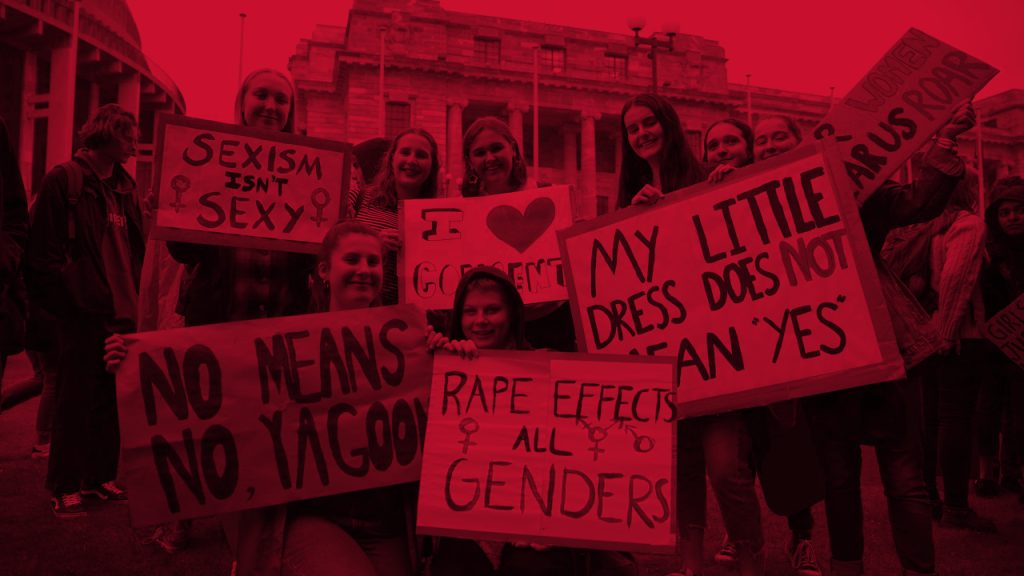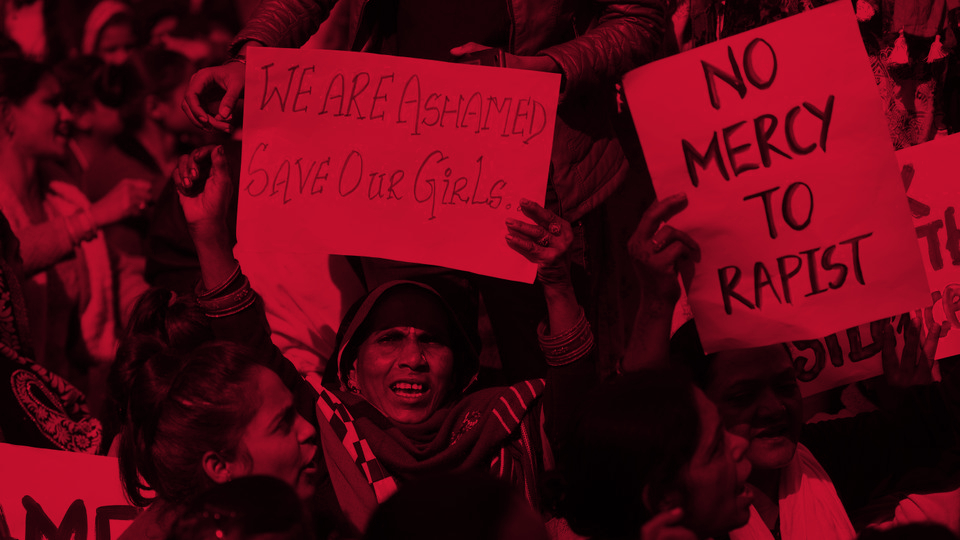Speak Out, Stand Against Rape:
it's not about the dress, it's about the mindset
What is Rape Culture?
Rape culture is a social environment that normalizes and justifies sexual violence, fueled by gender inequalities. Rape culture takes many forms in society, both verbal, nonverbal, and physical.
Apart from rape and sexual harassment as forms of the rape culture, other forms of rape culture are catcalling, victim-blaming, trivializing sexual harassment, defining “manhood” as dominant and sexually aggressive, and “womanhood” as submissive and sexually passive.
why is it important to know?
Rape culture affects all of us, regardless of our gender identity, ethnicity, economic status, religion, or age.
A strong patriarchal culture is still inherent in Indonesian society, where men hold the ultimate authority in their environment. This makes men’s position higher and stronger in all aspects of social, cultural, and economic life.
Social stereotypes about the dominance of men in life, make women less valued.
According to the Natinal Commission on Violence against Women in 2020, there were 431,471 cases ofviolence against women, up 6% from the previous year. Indonesia needs to stop thinking that talking about sex and gender is taboo, because it increases women’s vulnerability to violence and undermines human rights.


IMPACT OF RAPE CULTURE
The impact of this rape culture is a lack of security for victims of sexual crimes. Victims prefer to be silent about what they experience for fear of the negative stigma of the society. When the victim chooses to remain silent-which means that the perpetrator will not receive punishment and will not be deterred by their actions- the number of victims of sexual violence will always increase.
No human being deserves to be abused, even blamed when they have become a victim.
HOW TO STAND AGAINST RAPE CULTURE
Support women.
to amplify their voices, support women who survive in these issues. Listen to survivors and do not laugh at rape, because it’s never a funny punchline.
Redefine your own manhood and womanhood.
Do not let stereotypes shape your action, because gender euality is important. Both women and men have the right to be protected from sexual violence.
Be well educated.
It is important to broaden your understanding of rape culture, and also educate the next generation because rape culture takes many forms across the time (not only a man assaulting a woman as she walks alone at night)
Stop victim-blaming!
It often happens when the society blames women who begin to speak up about sexual violence they have experienced. This is caused by the stigma about women inherent in society. We can not blame a woman for what she wears, or where she was at a certain time. It is not an invitation to rape her.
Get involved to end the impunity.
to end rape culture, we must have zero tolerance of sexual harassment in all forms. We have to prosecute all sexual violence to enforce justice and human rights. If there is arefusal of punishment for the perpetrator, get involved to fight for justice.
Source
Komnas Perempuan
Rape Culture – CSB/SJU (csbsju.edu)
United Nation Women.2019.16 Ways you can stand against rape culture. [online] Available at:<16 ways you can stand against rape culture | UN Women>

